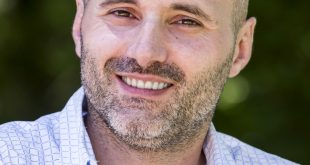Should be neoliberalism is destroying the illusion of liberal democracy.EvonomicsNobel Economist Says Inequality is Destroying Democratic Capitalism Angus Deaton | Senior Scholar and the Dwight D. Eisenhower Professor of Economics and International Affairs Emeritus at the Woodrow Wilson School of Public and International Affairs and the Economics Department at Princeton University
Read More »The Structural-Demographic Roots of the UK Crisis Peter — Turchin
I am often asked, after my talks or on social media, to pass a judgment on the stability, or lack of it, of a particular country. For example, looking across the Atlantic to the United Kingdom, one sees a lot of parallels with the crisis we are currently living through in the US. The rise of populism, increasing fragmentation of the political landscape—do these similarities reflect deep structural trends below the surface? Such questions can only be answered with a proper...
Read More »Jason Hickel — Inequality metrics and the question of power
How should we measure inequality? There are two metrics that economists use: relative and absolute. In the past I have argued that the relative metric – which is by far the dominant approach, embodied in the standard Gini index, in the famous “elephant graph”, and inlogarithmic distribution graphs – is problematic in that it is aligned with the interests and perspectives of the rich, and effectively obscures real inequalities in the distribution of new income around the world. From the...
Read More »Craig Murray — A Moment in History
Jeremy Corbyn represents the only realistic chance the people of England and Wales have been given in decades, to escape from the neo-liberal economics that have impoverished vast swathes of the population. But he leads a parliamentary party which is almost entirely comprised of hardline neo-liberal adherents.The majority of the parliamentary Labour party are the people who brought in academy schools, high student tuition fees, PFI, who introduced more privatisation into the health service...
Read More »Ten things to know about this year’s Alberta Alternative Budget
The Alberta Alternative Budget (AAB) is an annual exercise whose working group consists of researchers, economists, and members of civil society (full disclosure: I’m the Editor). Our general mandate is to create a progressive vision for Alberta to boost economic growth and reduce income inequality. This year’s document was released today, and here are 10 things to know: The NDP government of Rachel Notley government made important advances with respect to childcare,...
Read More »Ten things to know about this year’s Alberta Alternative Budget
Posted by Nick Falvo under aboriginal peoples, Alberta, budgets, Child Care, demographics, early learning, economic growth, education, employment, employment standards, fiscal policy, health care, homeless, housing, HST, income distribution, income support, Indigenous people, inequality, labour market, macroeconomics, minimum wage, NDP, population aging, post-secondary education, poverty, privatization, progressive economic strategies, public infrastructure, public services,...
Read More »Thomas Piketty and Emmanuel Saez (2002-2018): Income Inequality in the United States — Thomas Piketty and Emmanuel Saez (2002-2018): Income Inequality in the United StatesBrad DeLongBrad DeLong
Grasping Reality Thomas Piketty and Emmanuel Saez (2002-2018): Income Inequality in the United StatesBrad DeLong | Professor of Economics, UCAL Berkeley
Read More »MEDIA RELEASE: Alberta should increase social spending; cuts are not the way to go
(June 24, 2019-Calgary) With Alberta’s economy still facing challenges and vulnerabilities, the Alberta government should not be doling out tax cuts or cutting social spending, according to the Alberta Alternative Budget (AAB) released today. “Alberta still has, by far, the lowest debt-to-GDP ratio of any province,” says Nick Falvo, editor of the report. “We are in a good position to increase spending on education, invest in affordable child care, offer free dental care to Albertans...
Read More »MEDIA RELEASE: Alberta should increase social spending; cuts are not the way to go
(June 24, 2019-Calgary) With Alberta’s economy still facing challenges and vulnerabilities, the Alberta government should not be doling out tax cuts or cutting social spending, according to the Alberta Alternative Budget (AAB) released today. “Alberta still has, by far, the lowest debt-to-GDP ratio of any province,” says Nick Falvo, editor of the report. “We are in a good position to increase spending on education, invest in affordable child care, offer free dental care to Albertans...
Read More »The One Percent Have Gotten $21 Trillion Richer Since 1989. The Bottom 50% Have Gotten Poorer. — Eric Levitz
In its new Distributive Financial Accounts data series, the central bank offers a granular picture of how American capitalism has been distributing the gains of economic growth over the past three decades. Matt Bruenig of the People’s Policy Projecttook the Fed’s data and calculated how much the respective net worth of America’s top one percent and its bottom 50 percent has changed since 1989. He found that America’s superrich have grown about $21 trillion richer since Taylor Swift was...
Read More » Heterodox
Heterodox

